Communications Community Office 2021-2022 Annual Report

[ PDF version ]
What we do
The Communications Community Office (CCO) is a horizontal organization that supports communications professionals across the Government of Canada. We help communicators enhance their skills and abilities and grow their careers by offering a variety of services, including learning events, communications tools and news, staffing processes, and networking opportunities.
The CCO also serves as the secretariat for monthly heads of communications meetings and the annual Heads of Communications Retreat. We work closely with departments, central agencies, communities of practice, and other functional communities, as well as with public and private sector partners, to get ahead of the trends and develop the skills needed to keep pace with the speed of communications.
| Mandate | Objective | Areas of focus |
|---|---|---|
Our mandate is to provide tools and mechanisms to:
|
Our objective is to support and build a communications community that:
|
|
Mandate
Our mandate is to provide tools and mechanisms to:
- support recruitment and retention efforts by managers;
- enhance learning and career development opportunities for communicators;
- support the use of new technology and new media;
- strengthen the community through the sharing of information and networking; and
- advocate by positioning the communications function as a key partner in advancing Government of Canada priorities.
Objective
Our objective is to support and build a communications community that:
- is widely recognized as high performing;
- works collaboratively with partners;
- has the right skill sets; and
- attracts top talent.
Areas of focus
- Career development
- Training and learning
- Information sharing and data analysis
- Collective recruitment and retention
- Talent management
Message from the Communications Community Champion
I am pleased to present the 2021-22 annual report of the Government of Canada’s Communications Community Office (CCO). This report celebrates and reflects the capacity building, engagement and support provided to our communications community throughout the past year.
Since the pandemic, it has been even more critical for us to connect with Canadians, our stakeholders, other levels of government on a community, municipal, provincial/territorial, and international level, as well as with our employees. The last few years have shown us that in times of crisis we must move beyond engagement and communication to strengthening the linkages that exist between organizations and individuals and recognizing our inter-dependencies.
Despite the challenges we have all faced in recent years, the CCO has continued to work tirelessly to empower, enable, engage and promote a communications community that is widely recognized as high performing; works collaboratively with partners; has the right skill sets; and inclusive and diverse, listening and responding to the voices of equity-deserving communities.
I invite you to take full advantage of the opportunities the CCO continues to offer as we continue to build an evolving, more equitable and inclusive professional practice of communications. Investing in your own professional development and networking is a service you will be contributing to the success and sustainability of the community.
I sincerely express thanks, on behalf of Deputy Ministers, to all communications professionals across the Government of Canada for your commitment, resiliency and dedication to serving all Canadians. I am looking forward to the work to come in strengthening the Public Service and our critical role as the Government of Canada.
It is with honor that I will continue to serve as your Champion and work with the Communications Community Office (CCO) to strengthen our community.
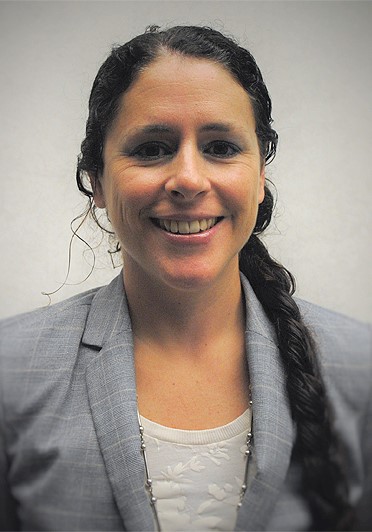
Valerie Gideon
Associate Deputy Minister of Indigenous Services
Champion of the Communications Community
Message from the Co-Chairs of the CCO Steering Committee
The Communications Community Office (CCO) continues to adapt to provide guidance and support, engaging with Canadians along the way, and with a constant eye to the future of work.
Government communicators have been challenged again this year, both professionally and personally, to provide critical support to Canadians, businesses, stakeholders and partners—ranging from that related to the pandemic and recovery, wild fires and climate events, and internal conflicts, to name a few.
The speed of change and the priorities ahead are now pointing in the direction of “precedented times,” where agility, resilience, creativity and innovation are the staples of the work we do to keep up and stay ahead of a changing landscape here in Canada and abroad.
Communications is integral to the development, implementation and ongoing administration of the Government’s policies, programs and services, and the CCO is providing key support and guidance on communications trends and approaches, learning services, training tools, career development, and recruitment and retention while fostering community engagement.
Highlights of the past year include:
- Management of the development and delivery of a benchmark report on the demographics and business lines of the Government of Canada’s communications community.
- Launch of a pilot partnership for the development and delivery of behavioural science research, tools and resources for the communications community.
- Delivery of a pilot partnership and outreach initiative on communicating with racialized communities.
- Ongoing work with the Organisation for Economic Co-operation and Development (OECD) – Government of Canada communications best practices are showcased in this year’s OECD Report on Public Communication: The Global Context and the Way Forward.
- Successful delivery of CCO Learning Days Conference 2022 with over 50 guest speakers delivering 13 sessions covering different specialties in communications, as well as several Ask Me Anything and networking sessions delivered by 14 communities of practice.
- Successful delivery of the CCO Mentoring Series, with a 40% increase in participation. The series is further principled on diversity of representation and continues to foster career development.
- Delivery of Monthly Virtual Learning Sessions and quarterly panel discussions in partnership with the Canada School of Public Service, highlighting best practices and lessons learned related to different communications functions.
- Delivery of a virtual Heads of Communications Retreat, which was held over two separate days and focused on the theme of connection, a topic that is more important than ever since the beginning of the pandemic.
- Development of IS-03 and IS-04 collective staffing processes for digital, web, and UX, and strategic communications, as well as partnership and support on an IS-06 staffing process.
- Successful delivery of our annual Government of Canada’s Communications Awards of Excellence, held virtually this year to recognize the exceptional contributions of federal communicators.
- Ongoing development of digital content, including the Key Messengers blog, highlighting individual communications professionals and their contributions. The newsletter and social media platforms grew by more than 500 subscribers and has reached nearly 4,000 communicators.
To our communications colleagues across government, thank you for all that you do for Canadians.
And finally, we wish to acknowledge the contribution of our steering committee of senior leadership and thank all the contributors, participants, and volunteers who continue to support our community through their dedication and commitment.

Ken MacKillop
Assistant Secretary to the Cabinet,
Communications and Consultations,
Privy Council Office

James Stott
Assistant Secretary
Strategic Communications and Ministerial Affairs
Treasury Board of Canada Secretariat
Governance
The CCO’s Steering Committee is made up of directors, directors general (DGs) and assistant deputy ministers of Communications. The Committee provides direction and sets priorities for the CCO and for the communications community. Members come from large, medium, and small organizations, with at least one representative from the regions.
The CCO coordinates monthly meetings of heads of communications and with its steering committee to address the top issues facing the community and to get quick feedback from DGs on initiatives, plans, and priorities.
We also consult with executives, managers and individual communications specialists on a regular basis to ensure our services are aligned with the needs of the community. Community members regularly support and share their knowledge at our learning events and write articles for our newsletter and social media channels.
Steering Committee members
- Ken MacKillop, Assistant Secretary to the Cabinet, Privy Council Office
- James Stott, Assistant Secretary, Treasury Board of Canada Secretariat
- Catherine Allison, Director General, Health Canada
- Mary Dila, Assistant Deputy Minister, Agriculture and Agri-Food Canada
- Kevin Dubé, Director General, Atlantic Canada Opportunities Agency
- Stéphane Levesque, Assistant Deputy Minister, Global Affairs Canada
- Jane Hazel, Vice President, Canadian Food Inspection Agency
- Caroline Hilt, Director General, Canada Economic Development for Quebec Regions
- Leanne Maidment, Director General, Public Safety Canada
- Dawolu Saul, Executive Director, Privy Council Office
- Aruna Sadana, Assistant Deputy Minister of Communications and Public Affairs, Indigenous Services Canada
- Melanie Sullivan, Executive Director, Communications Community Office, Privy Council Office
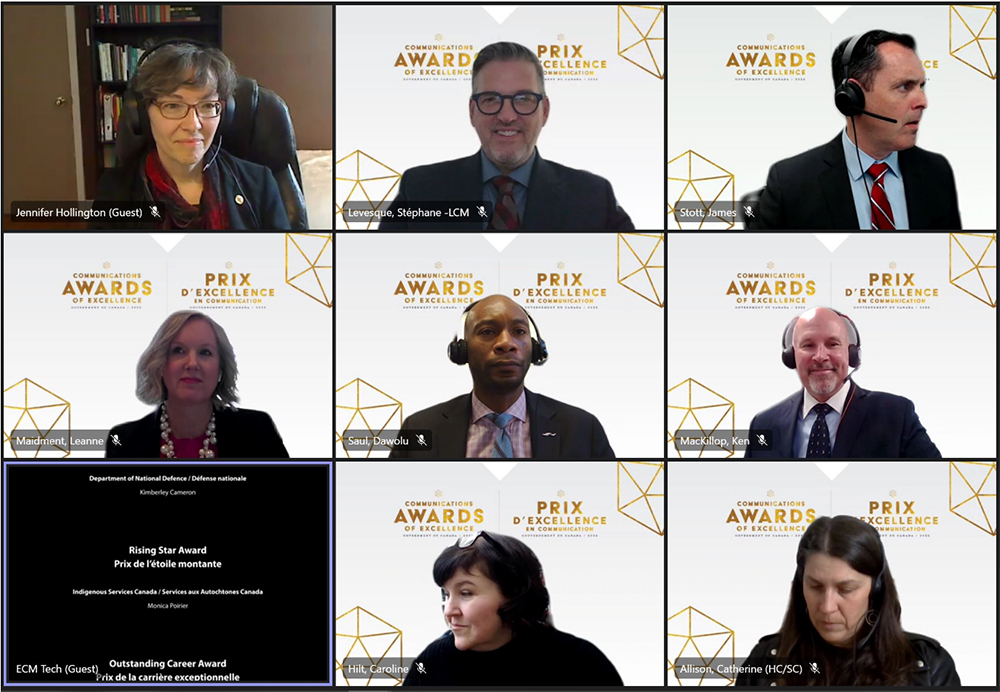
Our partners
The CCO is supported by memoranda of understanding and financial contributions from communications branches in departments and agencies across the Government of Canada. This funding model enables the CCO to offer a variety of services to the communications community. The CCO’s activities support communicators’ learning, training, and career development.
The CCO is also supported by in-kind contributions from many community partners who have provided their support, expertise, and advice throughout the year. Most notably, these community partners include:
- our volunteers;
- heads of communications;
- our communities of practice;
- our functional community partners; and
- the Canada School of Public Service.
Communities of practice
Communities of practice (COPs) are grassroots initiatives driven by federal communicators with expertise and a passion in a particular realm of communications. Their community-led structure offers their members the opportunity to share information, best practices, tools, and resources, discuss common challenges, and develop new approaches.
In 2021-2022, the CCO supported learning and networking opportunities offered by several of the COPs, including the newly formed Accessible Communications COP, Indigenous Communications Subgroup, and the Equity, Diversity and Inclusion Communications Network. Because of COVID-19, COP meetings were held virtually. Despite this challenge, many COPs continued to flourish, often hosting meetings with hundreds of participants from across Canada.
List of Communications COPs*
- Accessible Communications
- Advertising
- Communicating Science Network
- Communications Evaluations
- Copyright Media Clearance Program’s User Group
- Digital Analytics
- Equity, Diversity and Inclusion Communications Network
- Events
- Government Emergency Communicators Network
- Indigenous Communications Subgroup
- InterComm
- Media Relations
- Plain Language
- Policy Community
- Public Engagement
- Public Opinion Research
- Creative Services
- Social Media
- Speechwriting
- Storytelling
- Web Community / Canada.ca
Accomplishments for 2021-2022
Career development
The CCO launched the 2021-2022 Mentoring Series in September 2021. The annual goal was to continue to foster career development and a culture of continuous improvement, collaboration, and information sharing among communications professionals.
It was another record-setting year for communicators who joined the program to support and learn from each other. This year, 393 communications professionals participated in the Mentoring Series. That is a 40% increase, up from the 280 communicators who participated in the 2020-2021 program. The following is a breakdown of the communicators in the program this year:
- 58 mentors at the EX-01 level and above
- 119 mentors at the IS-05/06 level (or equivalent)
- 244 mentees (IS-02 to IS-06 level [or equivalent])
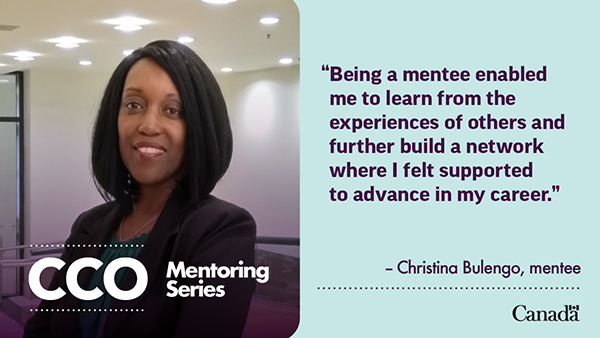
"Being a mentee enabled me to learn from the experiences of others and further build a network where I felt supported to advance my career."
Training and learning
The CCO continued to develop and provide training to communicators across government. The CCO aims to enhance skill sets to establish more diversified and well-rounded communicators and is committed to continuous learning and building an even stronger communications community.
This year, the CCO collaborated with the Canada School of Public Service, Apolitical, other levels of government, the private and not-for-profit sectors, as well as the communications community to continue updating the communications curriculum.
The CCO successfully piloted the Results Map learning program within seven departments. The learning programs provided communicators with guides (such as strategic communications, stakeholder and engagement, issues management and evaluation), webinars (on topics such as best practices in government, change management, strategic communications, crisis and issues management, a coaching forum and an Ask Me Anything session). Moreover, the program equipped communicators with ready-to-go templates and exercise worksheets for everyday work.
The following courses will help bridge the gap on skills and knowledge needed by the communications community:
- Speechwriting
- Strategic communications
- Storytelling
- Communications 101 boot camp in partnership with Apolitical
In addition to the Virtual Learning Series, the CCO worked with the Canada School of Public Service to deliver panel discussions on some of the most trending topics in communications in 2021-2022. These events included:
- Communicating with Indigenous Peoples During the COVID-19 Pandemic
- Serving Canadians Through Plain Language and Content Design: A Playbook for Co-Creating Effective Government of Canada Service Experiences
- Emergency Communications: A Playbook for Emergency Readiness and Best Practices Within the Government of Canada
- Best Practices and Innovative Strategies for Relaying Critical Internal Communications and Building Trust
CCO Learning Days 2022
CCO Learning Days 2022 took place from March 21 to 25. The conference was virtual and was held over a full week to provide sessions that were flexible and convenient for our busy communications community to attend from across the country. With the theme of “Connection” at the heart of the conference, we explored how our shared human experience over the past two years has shaped the future of the communications landscape.
Our #GCComms community came together with over 50 guest speakers delivering 15 sessions over five days, each with its own theme reflecting current priority areas for the community. This included several Ask Me Anything and networking sessions delivered by 14 Communities of Practice. There were over 2,000 participants registered for the conference, with a total of 1,989 unique visitors to the vExpo hub over all five days, as well as an average of over 600 unique attendees tuning in to the webcast on each day.
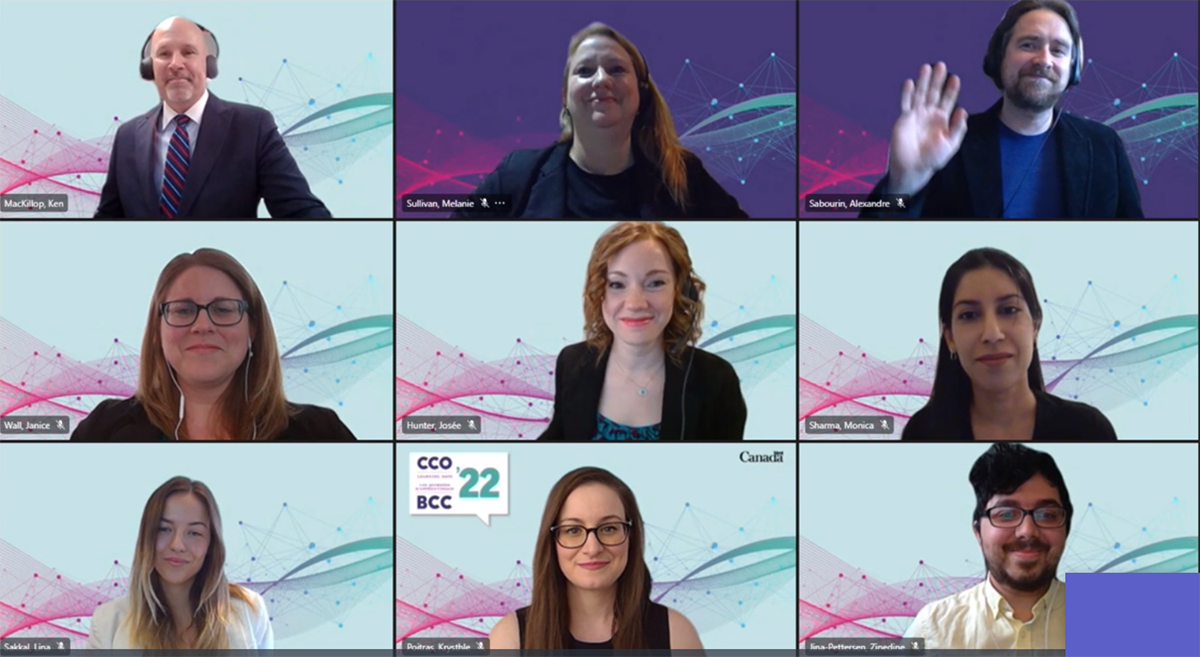
MCs, presenters, COPs, and volunteers from all corners of #GCComms, from all levels, regions, and areas of expertise, were part of the programming. Other highlights from the conference included sessions with high-profile keynotes and seasoned professionals from outside the Government, including WPP Government & Public Sector Practice executives Sean Larkins and Mark Pender; Canadian Anishinaabe activist, broadcaster and filmmaker Sarain Fox; and award-winning broadcaster Terry O’Reilly. The entire communications community from coast to coast had the opportunity to participate in the full week’s agenda, at their convenience, and nearly 25% of attendees were from outside the National Capital Region.
For those who weren’t able to attend, the entire conference was recorded and made available for viewing (accessible only on the Government of Canada network) over the course of the year and beyond. Attendee feedback was very positive with many lauding the professional quality of the broadcast and the use of modern platforms such as vExpo and Collaborate Video that included integrated engagement and accessibility features.
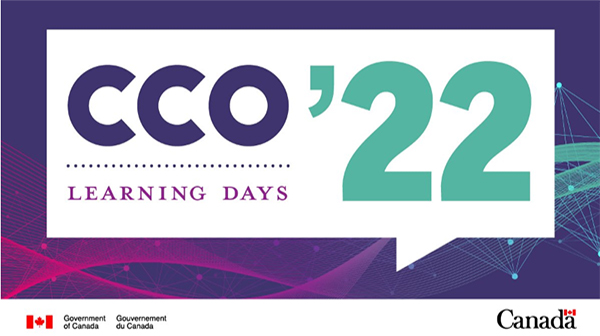
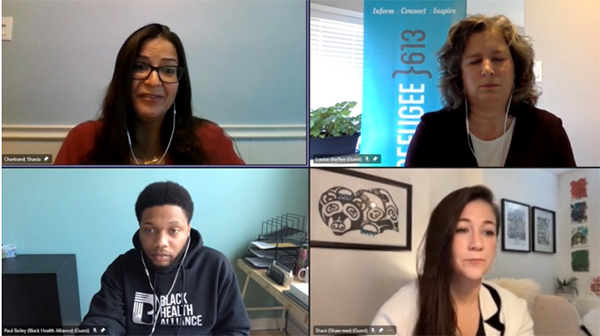
Collective recruitment and retention
Over the past year, the CCO moved forward on collective staffing processes for various IS levels with a focus on recruiting new talent to support the Government of Canada’s digital first approach:
- An IS-04 collective staffing process for digital, web, and UX fields was completed. A pool of over 90 qualified candidates from both the private and public sectors across the country was available in August 2021.
- An external IS-03 collective staffing process for digital, web and UX fields also launched in the past year. A pool of close to 100 qualified candidates from across Canada was available in February 2022.
- An IS-04 staffing process for communications advisor and advertising/marketing advisor positions in various departments launched in March 2022 and was open to applicants across Canada.
The CCO also actively manages pools and at-level lists of communications professionals of all levels and departments from across the country.
Communications Awards of Excellence
In April 2022, the Government of Canada Communications Awards of Excellence ceremony was held virtually. These awards recognize high-impact initiatives, exceptional contributions, and best practices in communications in the federal public service. We received 86 nominations from 30 departments. Congratulations to all nominees as well as this year’s winners.
- Diamond Award of Communications Excellence: Statistics Canada – 2021 Census innovative communications campaign
- Golden Alliance Award of Communications Excellence: Canadian Food Inspection Agency – #PawsB4purchase communications campaign
- Lighthouse Award of Communications Excellence: Indigenous Services Canada – June 2021 National Indigenous History Month (NIHM) and National Indigenous Peoples Day (NIPD) public education campaign
- Insider Award of Communications Excellence: Agriculture and Agri-Food Canada – Leveraging storytelling and visuals for an inclusive workplace
- Regional Powerhouse Award of Communications Excellence: Fisheries and Oceans Canada – Communications to support the MV Zim Kingston response
- Master Storyteller of the Year Award: Royal Canadian Mounted Police – Mandy Maier
- Digital Master Award: Health Canada – Alexander Jasperse
- Exceptional Social Leader Award: Department of National Defence – Kimberley Cameron
- Rising Star Award: Indigenous Services Canada – Monica Poirier
- Outstanding Career Award: Health Canada – Jennifer Hollington


Information sharing and data analysis
The CCO completed and delivered a benchmark review and business analysis of the communications community. The findings of this report helped support departmental communications leadership in their organizational and human resources planning and decision-making.
The CCO is also working with the Treasury Board Secretariat to gather data and case studies on the pace and volume of work in our community to help inform collective bargaining discussions regarding the future of work.
Based on consultations with leaders in the communications community over the course of the year, as well as input from the COVID-19 Response Communications Team at the Privy Council Office (PCO), the CCO coordinated the development of a Lessons Learned report. This report will help inform current and future emergency management responses and identify new best practices in communications that can be implemented to ensure a better recovery.
The CCO also funded and promoted subscriptions, licences and access to Media Technology Monitor data sets and information on media use in Canada for use by the communications community in the development of evidence-based communications advice.
Some other notable accomplishments for the community include the launch of the CCO Ambassador Network, as well as the Cross-Canada Communicators Advisory Group (CCCAG), which both play important roles in building a stronger, collaborative, innovative, inclusive, open and united communications community.
As part of our efforts to more effectively reach and engage our community, we established a new CCO Ambassador Network comprised of over 60 key liaisons from all CCO’s contributing departments. These liaisons have an extensive knowledge of their branch and provide broader reach for the promotion of the CCO’s activities and events as well as for the collection of feedback from the community. The network was launched in October 2021, with monthly meetings allowing for increased collaboration among communicators and increased awareness of the CCO as a centre of excellence for career development, training and learning, and information sharing.
The CCCAG was launched in November 2021 and is comprised of regional executives and senior managers who are well-connected, engaged and trusted sources of information within their regional networks. The objective of this network is to encourage cross-country information sharing and collaboration.
Staying connected
Over the course of the year, the CCO issued 12 monthly digital newsletters to keep the community up to date on the latest news and trends. The distribution list now reaches more than 4,300 communicators.
The CCO continues to maintain a social media presence, including Twitter and recently upgraded to a new LinkedIn business account. The CCO also shares information and resources on GCTools (GCconnex and GCpedia) (accessible only on the Government of Canada network) and on the CCO website. In 2021-22, the @CCOBCC Twitter account reached over 4,000 followers. The CCO LinkedIn accounts grew to over 2,700 and over 700 connections respectively in the same period.
Key Messengers blog
In 2020, the CCO launched a new blog called Key Messengers. This new initiative highlights stories from the communications community. Since April 2021, the CCO has published 15 new articles sharing best practices and lessons learned across various areas in federal communications:
- Adjusting the nation’s largest survey to a pandemic
- A story about storytelling
- Tips and tricks for visual storytelling
- Communicating with Canadians during times of crisis - Finance Canada’s award-winning campaign
- Delivering effective communications: Diverse and inclusive networks
- Evaluation in communication
- #ProtectOurElders – Creating Pandemic Communications Partnerships
- Going #Beyond2020: Using Social Media to Put People First – Justin Mathews
- Using Plain Language in Marketing and Advertising
- Rising to the challenge: Navigating internal communications in an endemic world
- Culture change from the inside out: The Correctional Service of Canada’s Respectful Workplace Campaign
- Developing your communications strategy with evaluation in mind
- Collaborating with internal partners for a successful communications strategy
- Running social media without ruining your life
- Best practices for communicating in a digital world
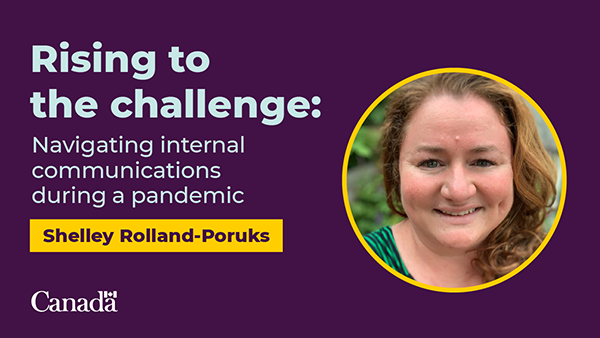

Anti-racism, diversity, and inclusion
The CCO’s mandate aligns with the Clerk’s Call to Action on Anti-Racism, Equity, and Inclusion in the Federal Public Service.
While there is much work ahead, below are the measures undertaken to advance inclusion and diversity:
- Committing to personally learning about racism, reconciliation, accessibility, equity and inclusion, and fostering a safe, positive environment where these conversations are encouraged throughout our workplaces;
- Enabling conversations – in partnership with functional communities across the federal portfolio, the CCO has hosted, organized, supported and promoted training to support conversations around diversity;
- Sharing communications tools and resources supporting inclusive language (organic/evergreen);
- Encouraging and requiring diversity in representation in the mentorship/sponsorship program;
- Having diversity in representation in the CCO’s Steering Committee and in staffing and hiring boards;
- Combatting all forms of racism, discrimination, and other barriers to inclusion in the workplace by taking action on what we have learned, empowering employees to speak up about bias and oppression, and better equipping managers to address these issues;
- Enabling and advancing the work of grassroots networks and communities within the public service by providing necessary resources and bringing them into discussions at senior executive tables;
- Being guided by voices from diverse backgrounds in the identification of systemic racism, discrimination and barriers to inclusion, and the design and implementation of actions to address them; and
- Measuring progress and driving improvements in the employee workplace experience by monitoring disaggregated survey results and related operational data (for example, promotion and mobility rates, tenure) and acting on what the results are telling us.
Accessible and inclusive communications
Throughout the pandemic, public servants have continued to communicate important health, safety, and economic recovery information to Canadians living both at home and abroad—using primarily digital platforms. The CCO and many other departments and organizations are actively working to implement better accessibility strategies to inform these efforts and ensure equitable access to information and services for all Canadians.
In the fall of 2021, the CCO worked with Canadian Heritage and Accessibility Standards Canada to create the new COP for Accessible Communications with a mandate to connect the GC community to exchange ideas and support policies, guidelines, and best practices related to internal and external accessible communications. The COP welcomed colleagues from all fields and from all areas of communications across the Government of Canada for its inaugural meeting on December 6, 2021, and had over 550 participants attend its open-house session as part of CCO Learning Days 2022 on March 22, 2022. This high engagement rate further highlighted the communications community’s need for increased resources, information and activities focusing on diversity and inclusion.
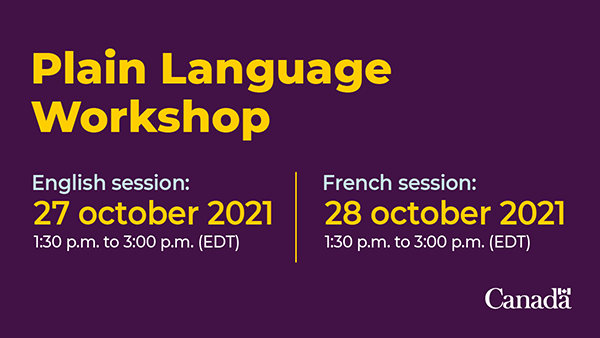
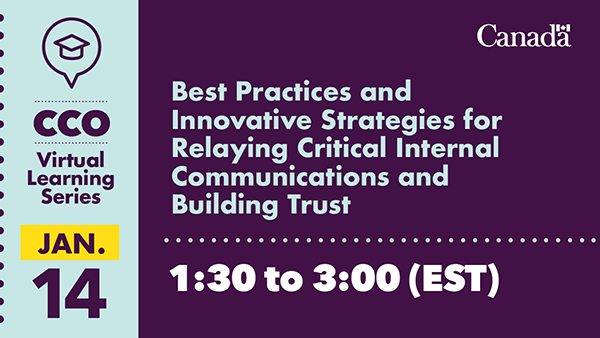
The way forward
In 2021, the CCO developed a new three-year business plan that lays the groundwork for long-term progress and outlines short-term activities to address the challenges the communications community is facing. The plan was informed by input, feedback, and data collected in the benchmark review, findings from the Public Service Employee Survey, and guidance from the communications community.
In 2022-23, the CCO will continue to build on its solid foundation and promote activities within the following five areas of focus:
- Career development;
- Training and learning;
- Collective recruitment and retention;
- Talent management; and
- Information sharing and data analysis.
In addition to updating the communications curriculum, the CCO will continue to:
- Finalize interdepartmental standard job descriptions for the communications community and update competencies;
- Develop a career roadmap for the communications community;
- Play a key role in collective staffing and recruitment;
- Work closely with partners to leverage their experience;
- Seek and foster collaboration with our COPs;
- Strengthen relationships with communicators across Canada and the National Capital Region;
- Connect talented communicators with the right opportunities;
- Host a variety of learning and development activities, including monthly learning sessions;
- Promote diversity and inclusion within the communications community; and
- Engage and advocate for the future of work.
In the next year, the CCO will also partner with the Privy Council Office’s Impact and Innovation Unit (IIU) to create capacity in applying behavioural science across federal government communications. This new communications hub will help inform Government of Canada communications by providing resources, advice and data through learning and training activities. The CCO/IIU Hub will also explore areas such as trust and digital experience, insights, and techniques, misinformation and disinformation, and barriers to inclusive communications, in particular around racism.
In support of employees who seek equity in career progression, the CCO will co-develop, with diverse employee networks, a Career Development Initiative dedicated to the communications community. The initiative will aim to address barriers faced by equity-seeking employees, bridge gaps in representation, and increase diversity in the executive group.
The CCO will also continue its partnership with the Organisation for Economic Co-operation and Development (OECD). The OECD is interested in consulting with the Government of Canada and other countries in an upcoming Public Communications Scan.
The strength of the Government of Canada’s communications community lies within the abilities of its people. This past year has been a true testament to the talent and skill of communications professionals exhibited through collaborative and innovative initiatives and campaigns. Over the next year, the CCO will continue to highlight the excellent work of communicators through its channels (social media, newsletter, and Key Messengers blog), while placing a focus on learning opportunities and events such as our Virtual Learning Series and the Government of Canada’s Communications Awards of Excellence.
The CCO is proud to serve such passionate, talented, and high-performing government communicators who are making a difference in the lives of Canadians. The drive and passion of the communications community fuel the success of the CCO.
CCO numbers at a glance
- 39 departments and agencies
- Over 4,000 Government of Canada communicators
- 10 heads of communications meetings
- 1 virtual Heads of Communications Retreat Series
- 11 CCO Steering Committee meetings
- 21 communities of practice (accessible only on the Government of Canada network)
- 5 major events
- CCO Learning Days
- Government of Canada’s Communications Awards of Excellence
- Heads of Communications Retreat Virtual Series
- 2019-2020 Mentoring Series Wrap
- 2020-2021 Mentoring Series Launch
- 11 Virtual Learning Series sessions (accessible only on the Government of Canada network)
- Search Engine Optimization for social media
- Leveraging data to support your Communications
- The First Sixteen: telling stories through podcasts
- Combatting misinformation and Disinformation
- Communicating with Indigenous Communities
- CBSA workshop about plain language and culture in English and French
- Fundamentals of Canada.ca
- Evaluation Communications – Tools, tactics, tips and tricks
- Content sharing and experimentation with Canada.ca’s content management system
- Optimization tools for improving Canada.ca web content and design
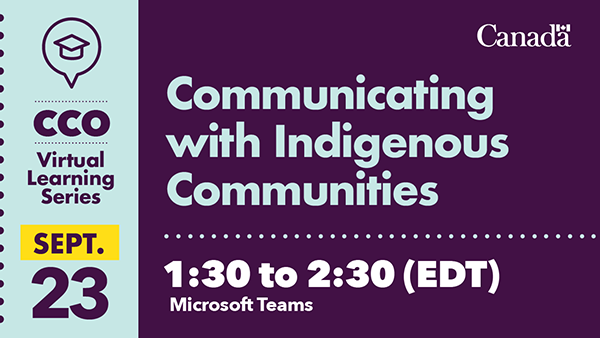
- 4 virtual learning events in collaboration with the Canada School of Public Service
- Communicating with Indigenous Peoples During the COVID-19 Pandemic
- Serving Canadians Through Plain Language and Content Design: A Playbook for Co-Creating Effective Government of Canada Service Experiences
- Emergency Communications: A Playbook for Emergency Readiness and Best Practices Within the Government of Canada
- Best Practices and Innovative Strategies for Relaying Critical Internal Communications and Building Trust
- 1 mentorship program
- 58 mentors at the EX-01 level and above
- 119 mentors at the IS-05/06 level (or equivalent)
- 244 mentees (IS-02 to IS-06 level [or equivalent])
- Over 6,000 social media connections
- 15 new Key Messengers blog posts
- Adjusting the nation’s largest survey to a pandemic
- A story about storytelling
- Tips and tricks for visual storytelling
- Communicating with Canadians during times of crisis - Finance Canada’s award-winning campaign
- Delivering effective communications: Diverse and inclusive networks
- Evaluation in communication
- #ProtectOurElders – Creating Pandemic Communications Partnerships
- Going #Beyond2020: Using Social Media to Put People First
- Using Plain Language in Marketing and Advertising
- Rising to the challenge: Navigating internal communications in an endemic world
- Culture change from the inside out: The Correctional Service of Canada’s Respectful Workplace Campaign
- Developing your communications strategy with evaluation in mind
- Collaborating with internal partners for a successful communications strategy
- Running social media without ruining your life
- Best practices for communicating in a digital world
- 12 CCO monthly newsletters
- 1 special edition newsletter to promote CCO Learning Days 2022
- 3 IS staffing processes
- An IS-04 and IS-03 collective staffing process for the digital, web, and UX fields
- An IS-04 collective staffing process for communications advisor and advertising/marketing advisor positions
Annual funding for 2021-2022
Funding by departments and agencies
To facilitate long-term planning, the CCO has negotiated multi-year funding agreements with departments and agencies for the period from April 1, 2021, to March 31, 2024. Currently, there are 46 departments and agencies participating in the multi-year funding agreements. The funding formula is based on the number of employees in the Information Services (IS) category at each contributing department and agency.
| Department/Agency | Funding ($) |
|---|---|
| Agriculture and Agri-Food Canada | 41,250 |
| Atlantic Canada Opportunities Agency | 22,500 |
| Canada Border Services Agency | 41,250 |
| Canada Economic Development for Quebec Regions (Quebec) | 22,500 |
| Canadian Food Inspection Agency | 41,250 |
| Canada Revenue Agency | 41,250 |
| Canada School of the Public Service | 22,500 |
| Canadian Heritage | 41,250 |
| Canadian Institutes for Health Research | 7,500 |
| Canadian Northern Economic Development Agency | 7,500 |
| Canadian Nuclear Safety Commission | 7,500 |
| Canadian Radio-television and Telecommunications Commission | 22,500 |
| Canadian Space Agency | 22,500 |
| Canadian Security Intelligence Service (CSIS) | 22,500 |
| Communications Security Establishment | 22,500 |
| Correctional Service Canada | 22,500 |
| Elections Canada | 22,500 |
| Employment and Social Development Canada | 41,250 |
| Environment and Climate Change Canada | 41,250 |
| Federal Economic Development Agency for Southern Ontario | 7,500 |
| Finance Canada | 22,500 |
| Fisheries and Oceans Canada | 41,250 |
| Global Affairs | 41,250 |
| Health Canada | 41,250 |
| Immigration, Refugees and Citizenship Canada | 41,250 |
| Impact Assessment Agency of Canada | 7,500 |
| Indigenous Services Canada | 41,250 |
| Infrastructure Canada | 22,500 |
| Innovation, Science and Economic Development Canada | 41,250 |
| Justice Canada | 41,250 |
| Library and Archives Canada | 22,500 |
| National Defence | 41,250 |
| Natural Resources Canada | 41,250 |
| Parks Canada | 22,500 |
| Public Safety | 41,250 |
| Public Service Commission of Canada | 22,500 |
| Public Services and Procurement Canada | 41,250 |
| Royal Canadian Mounted Police | 41,250 |
| Shared Services | 41,250 |
| Statistics Canada | 41,250 |
| Transport Canada | 41,250 |
| Transportation Safety Board of Canada | 7,500 |
| Treasury Board of Canada Secretariat | 41,250 |
| Veterans Affairs Canada | 22,500 |
| Western Economic Diversification Canada | 7,500 |
| Women and Gender Equality | 22,500 |
| Total Contributions | 1,361,250 |
Financial results
| Funding | Amount ($) |
|---|---|
| Funding received from Communications branches of Government of Canada departments | 1,361,250 |
| Expenditures | Amount ($) |
|---|---|
| Salaries, administration and corporate support | 1,102,094 |
| Translation | 59,405 |
| Secretariat support to Government of Canada heads of communications Annual retreat 2022 |
6,060 |
| Learning and training Communications Community Office (CCO) Learning Days 2022 Conference |
74,495 |
| Information and analysis Government of Canada subscriptions, licences and access to Media Technology Monitor data set and information on media use in Canada |
92,024 |
| Information and analysis Government of Canada Communications Community benchmark survey – final report |
5,000 |
| Recruitment and retention Subscription to VidCruiter, video interview platform |
15,000 |
| Community building Government of Canada Communications Awards of Excellence |
1,754 |
| Community building Accessible Communications Community of Practice |
5,418 |
| Total expenditures | 1,361,250 |
Feedback
We want to hear from you.
Let us know how we can support you better. Send us your ideas for the future. Email us at info@cco-bcc.gc.ca.
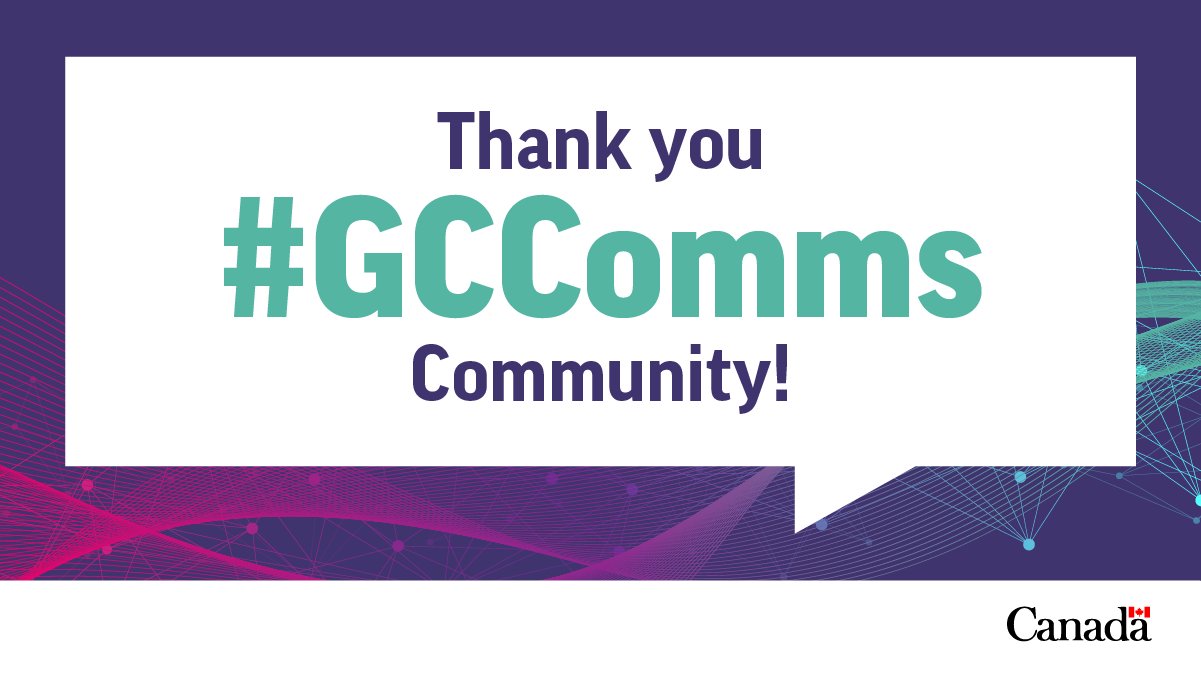
Library and Archives Canada cataloguing in publication
Library and Archives Canada cataloguing in publication
Library and Archives Canada cataloguing in publication
©Privy Council Office (2022)
All rights reserved
All requests for permission to reproduce this document or any part thereof shall be addressed to the Privy Council Office.
Cette publication est également disponible en français :
Rapport annuel 2021-2022 du Bureau de la collectivité des communications
ISSN 2562-5993
Page details
- Date modified: